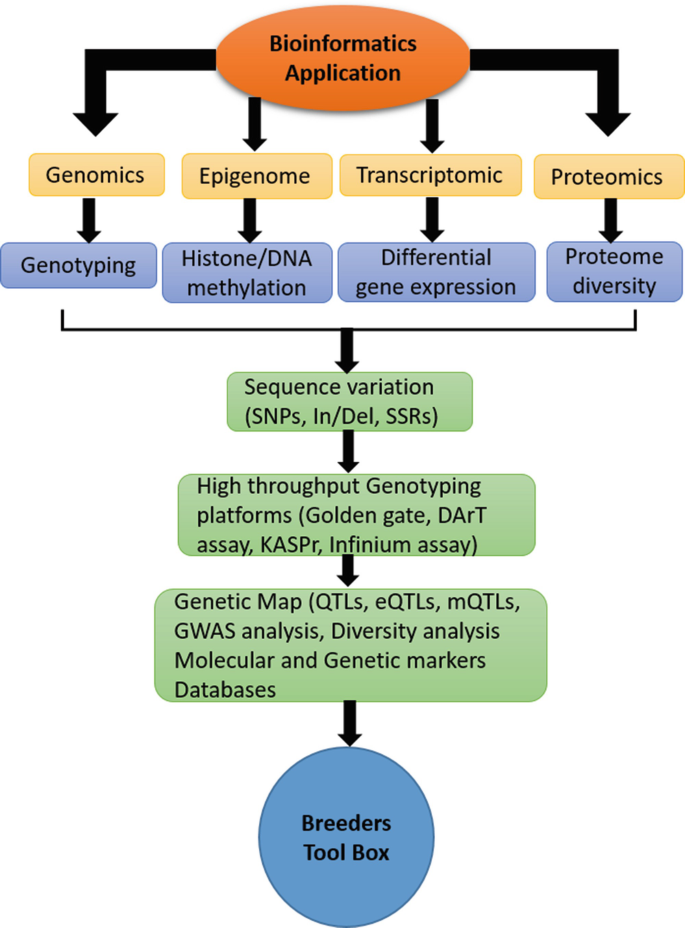4 Simple Techniques For Bioinformatics Tutor
4 Simple Techniques For Bioinformatics Tutor
Blog Article
Some Known Incorrect Statements About Bioinformatics Tutor
Table of ContentsThe Only Guide to Bioinformatics TutorThe Of Bioinformatics TutorThe smart Trick of Bioinformatics Tutor That Nobody is DiscussingRumored Buzz on Bioinformatics TutorNot known Facts About Bioinformatics Tutor
Preliminary project growth is fairly taxing, as it involves careful preparation of the topic, structuring of deliverables, and factor to consider of the skills and experience degrees of participants. Once a job has actually been clearly defined and executed, it has the possible to be reused in future sessions with only minor alterations to mirror updates in the field or fit distinctions in participant backgrounds. This makes project-based discovering a reliable and sustainable mentor approach in the future, particularly in quickly advancing disciplines like bioinformatics.To make certain connection and reproducibility of knowing, giving shared lab notebooks-- either physical or digital-- is crucial. These notebooks act as collective logs where trainees can tape their progression, code, methodologies, and results throughout the training course. Not just do they enhance learning by encouraging documentation and reflection, however they additionally function as post-course referral products that individuals can get in touch with in future research or academic tasks.
Mentors play a vital function in the success of project-based programs. Ideally, mentors ought to be active researchers with a comprehensive and current understanding of both the academic structures and sensible applications of bioinformatics in their corresponding self-controls. Their ability to bridge complex principles and real-world execution is essential in aiding trainees navigate the challenges of interdisciplinary research. Furthermore, advisors likewise serve as good example and inspire students to proceed pursuing jobs in computational biology and relevant fields.
The 5-Second Trick For Bioinformatics Tutor
One more trick aspect of the understanding procedure is giving participants the chance to offer their work to others, especially to an audience past their prompt project group. Last discussions or mini-conferences permit trainees to express their searchings for, receive useful comments, and gain self-confidence in communicating clinical material. This presentation part is often a preferred among pupils, as it validates their efforts and highlights the real-world significance of their job.
Each version of the program was fine-tuned based on individual responses and advancing ideal techniques in pedagogy. Bioinformatics Tutor. These adjustments made certain that the core objectives-- hands-on understanding, cooperation, and used analytical-- stayed intact while expanding the deepness and breadth of subjects covered.
A remarkable visualization that recorded participant view was a word cloud produced from responses to the 2014 end-of-course study. This visual comments reinforced the program's focus on experiential knowing and advisor support.
The payments of individuals such as Rustici, G., Orchard, S., Cowley, A., and Twells, R., along with various other members of the EBI user-training-working team, were instrumental in improving the course structure and material. Their insights assisted form a flexible and inclusive model that might be adapted to various institutional and local contexts.
See This Report on Bioinformatics Tutor

Jones, Rasmussen, and Moffitt (1997) also supported for interdisciplinary knowing via collective task work, noting its ability to imitate expert settings and prepare students for future scholastic or industry functions. In a thorough evaluation, Thomas (2000) analyzed numerous studies on PBL and wrapped up that pupils not only do well academically yet also establish a much deeper understanding of the subject and enhanced synergy skills.
In the context of bioinformatics education, innovative approaches like classroom games and simulation-based training have additionally been used. As an example, Schneider and Jimenez (2013) introduced the usage of interactive games to instruct organic information assimilation, enabling students to comprehend complicated principles via experiential knowing. This type of gamification matches the hands-on discovering stressed in project-based training courses by presenting a component of enjoyable and competitors, which can further enhance engagement.
Returning to the course talked about right look at this site here, the lessons gained from the execution of project-based understanding in a bioinformatics setting have wider implications for other STEM fields. The approach highlights not just technical effectiveness, yet additionally interaction, partnership, and crucial thinking-- skills that are increasingly valued in both academic community and sector.
The Basic Principles Of Bioinformatics Tutor
The scalability of the program format additionally makes it a practical design for other institutions. With ideal personalization based upon regional requirements, available sources, and participant accounts, the framework from this source can be duplicated or adapted for use in various other scientific domain names. Additionally, the addition of structured mentorship and evaluation strategies assists make sure consistent high quality and quantifiable knowing end results.

Finally, project-based learning in bioinformatics uses a powerful approach to mentor complex, interdisciplinary material in a manner that is both available and intellectually promoting. By stressing partnership, sensible application, and vital inquiry, such initiatives not only boost specific knowing yet likewise add to the growing of a brand-new generation of cutting-edge and skilled researchers.
Bioinformatics Tutor Can Be Fun For Anyone

An additional key aspect of the knowing process is giving participants the opportunity to present their work to others, especially to an audience past their instant job group.In the more comprehensive instructional literary works, project-based understanding (PBL) has been extensively studied and validated as an effective technique for advertising deep understanding, critical thinking, and transferable skills. Adderley et al. (1975) emphasized the value of task techniques in higher education, noting that they advertise active learning and autonomy. Schneider and Jimenez (2013) introduced the use of interactive games to teach organic data combination, allowing trainees to understand complex concepts via experiential discovering.
Report this page